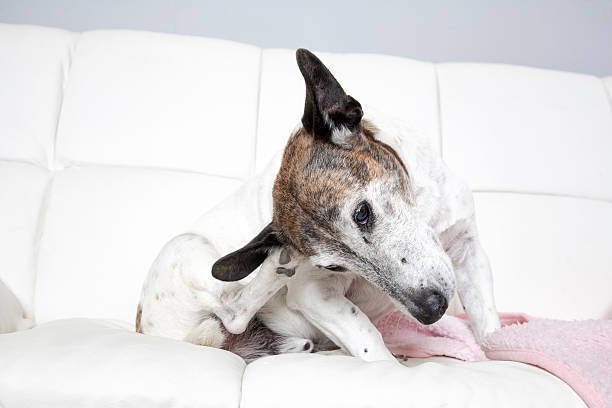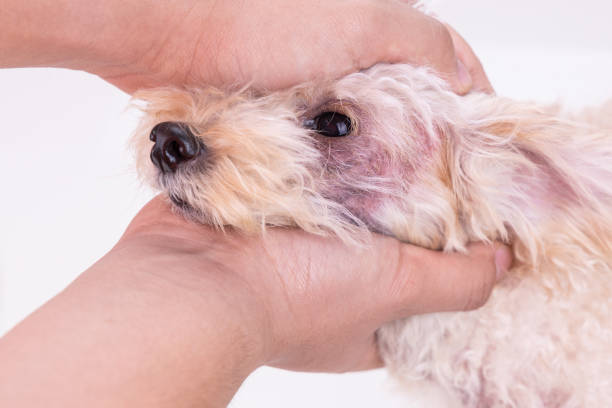The arrival of Halloween is imminent, providing an ideal opportunity to talk about the wide array of delightful candies out there. One of the most popular choices in sweet indulgences, without a doubt, is chocolate. There are countless reasons why people love chocolate, be it the indulgent flavour or the exquisite texture, it holds a high position in many people’s ranks of preferred treats.
If you’re looking for an easy way to treat your dog this holiday season, you might want to think twice before feeding them any chocolate products. That’s because there is a big chance they will suffer some rather unpleasant side effects from consuming this food item. These side effects can range anywhere from vomiting to diarrhoea. This year, make sure you save the candy for yourself and your friends and family! Read on to learn more about why chocolate is not suitable for dogs.


For starters, dogs are one of the most common pets that get into toxic foods. If you have a dog at your house, you must ensure they’re not getting into any harmful food items. Dogs love to eat almost anything; whether it’s a ball, their leash, or even your homework, there’s no denying that they love food. Therefore, it’s essential to keep certain foods out of reach to avoid exposure to anything toxic. You don’t want them to eat chocolate because the effects can be life-threatening and irreversible.
Most people think of chocolate as a sweet and delicious taste, often loved by children and adults alike. Remember that chocolate contains caffeine and theobromine, two ingredients known for their stimulating effects. These ingredients can be toxic to certain animals such as dogs because they affect the nervous system-often making them ill after eating a poisonous amount.
Chocolate also contains sugar, which is another factor in your dog becoming sick. The added sugars are complex for dogs to process due to their limited number of digestive enzymes.
Chocolate poisoning is most common at certain times of the year, such as Halloween, when people are trick-or-treating with full candy bags. Dogs can’t resist a sweet treat, and they might end up getting into your candy supply if you’re not careful.
It’s also important to remember that chocolate can be found in many different products, such as baked goods, candies, or even some kinds of makeup. This means that chocolate poisoning is always a possibility, so it’s best to try and avoid giving your dogs anything that has even the slightest bit of chocolate in it.


What Are The Dangers Of Feeding Your Dog Chocolate?
Several problems are associated with dogs eating chocolate ranging from mild to severe conditions. The most common side effect is vomiting due to how the body absorbs two ingredients found within chocolate: caffeine and theobromine. These two chemicals can cause a dog’s body to become stimulated and lead to excessive vomiting and diarrhoea, which will require immediate medical attention.
If your dog continues ingesting chocolate, they run the risk of caffeine poisoning, which can occur when dogs eat more than 100mg per kilogram of their weight. Suppose your dog consumes an excessive amount of chocolate. In that case, they will experience hyperactivity and excitement. This can last anywhere from half an hour to a few hours until the effects wear off. Dogs may also suffer tremors and seizures, leading to death if not treated immediately. Additionally, dogs who eat chocolate often show abdominal pain and nausea, leading to an upset stomach.
One of the most common side effects for dogs who eat chocolate is diarrhoea. This can occur in up to one-third of all chocolate poisonings. When a dog ingests too much caffeine, it causes its intestines to become hyperactive and move faster than the digestive system.
Another issue with dogs eating chocolate is urinary issues such as abnormal urination or urinary incontinence. This occurs because of the way caffeine and theobromine act on your dog’s bladder, making them unable to hold in their urine. This may lead to other complications like bladder infections and stones in their urinary tract.
What Can You Feed A Dog Who Has Eaten Chocolate?
Suppose you’re wondering what you should feed a dog who has eaten chocolate. In that case, it’s important to note that the effects vary depending on how much they ate and how long ago they did so. Suppose your dog is still experiencing the effects of chocolate poisoning.
In that case, it’s best not to feed them anything at all because doing so could lead to further stomach aches and vomiting. If your dog has already vomited up the chocolate they ate but still needs nourishment, a small meal is okay every few hours.
It’s also essential that you don’t try to induce vomiting in your dog if they have eaten chocolate because they may choke. The most important thing to do is to monitor your dog’s health, especially their behaviour and any accidents that might happen. If you’re not sure what type of food or medication would be best for your pet, it’s best to call your vet, and they will make an assessment based on the information you provide.


What Can I Do To Prevent My Dog From Eating Chocolate?
One of the best things you can do to prevent chocolate poisoning is to keep all types of candy out of reach of your, dog-regardless if they’re in their trick-or-treat bags. Most dogs are aware when certain types of food are off-limits to them, so you must keep chocolate bars in containers or inside cabinets.
Another big step in preventing your dog from eating chocolate is to ensure that they don’t smell the sweet aroma. Before you open a bag or box of candy, it’s best to put them in a spot that your dog cannot reach-or keep the trash can lid closed so they are unable to eat whatever is inside.
If you notice chocolate bars, bags, or wrappers left out on kitchen counters or tables-it’s best to put them in a secure place before your dog can get to them. Most dogs can get into cabinets without any problems, so it’s best to keep anything with chocolate out of reach if you don’t want your dog eating it.
The most important thing to note when discussing household rules is that dogs are different. While some may be able to resist the temptation of chocolate, others might not. If you’re unsure if your dog has a history of eating candy, it’s best to keep them on a tight leash and watch what they do when they’re out.
Conclusion
The chances are that your dog will be drawn to the sweet smell of chocolate, which is why keeping all types of candy out of reaching them is essential. If you spot some on a countertop, ensure they’re in an enclosed container or cabinet. Even if your dog doesn’t have a history of eating candies, it’s best not to take any chances and monitor their behaviour when they’re out.
In addition, if your dog has overeaten chocolates, you can feed him small meals every few hours to prevent the severity of symptoms. The most important thing for pet owners is knowing how different pets react differently, so don’t hesitate to call your vet for help.


